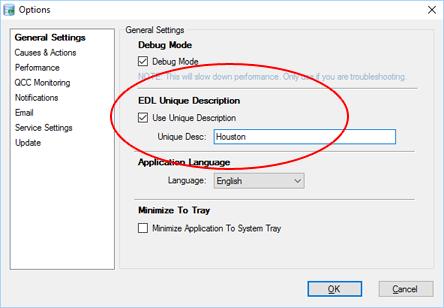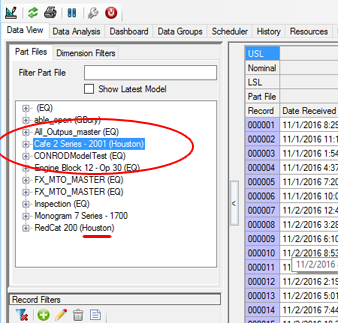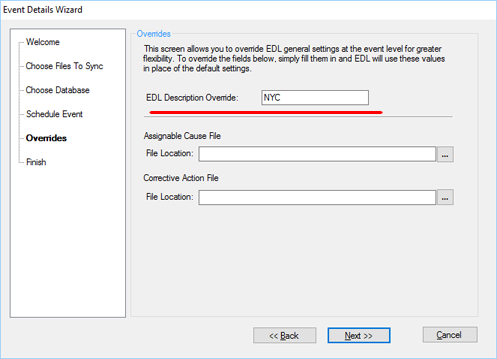Introduction
Customers often add QCC files from multiple plants into a single SQL Server database using the Enterprise Data Loader (EDL). Once they have been added, it can become difficult to organize them. Imagine 5 plants each with 100 QCC files being imported into the database. That creates 500 QCC files all with mixed naming conventions. It gets worse if multiple plants make and measure similar or the same part numbers.
Internally, EDL uses a combination of the QCC file name and an internal creation date to positively identify QCC files and keep them straight, but that doesn't help people. This is where the EDL Description comes into play. It provides a human-readable descriptor to the files since it is much easier to look for part number 12345 from Houston than it is to look for part number 12345 created on 1/1/2008 at 12:46:52PM. This description helps people identify the origin of a part file (QCC file) in the database, and it can be set globally in EDL in the Tools > Options > General area.

Setting the field to any identifier (100 char. or less) will tag all QCC files imported by that copy of EDL into the database with the plant identifier. Since most plants implement one copy of EDL at the plant level this works perfectly and can be seen below in ERS. Wherever part files are listed, the EDL Description is displayed in parentheses.

Once added, it can be used for file permission (i.e. Users only allowed to see data from their respective plants) and for filtering (i.e. Show me the critical dimensions in the Houston plant). In addition to being a global setting in EDL, this description can also be set at the event level in the Overrides screen. This allows you to segregate your parts further.
For instance, if you have a plant with several departments and you want to note this on the parts, you can create multiple load events in EDL and add different overrides to each (i.e. Houston-Milling, Houston-Turning). These fields are completely custom so use your imagination.
NOTE: If the global description is set, it will apply to all events that do not have the override set. Those events that have an override set will automatically override the global value.

More Information
For those seeking more information about the database, the EDL unique description is stored in the qcc_file table in the edl_desc field. This field is nullable and defined as an NVARCHAR(100) accepting unicode values.
Conclusion
Whether you use it globally (Tools > Options > General) or at the event level in the event wizard, it is always recommended that you tag your part files with an EDL Description. It is included in the EDL best practices articles.